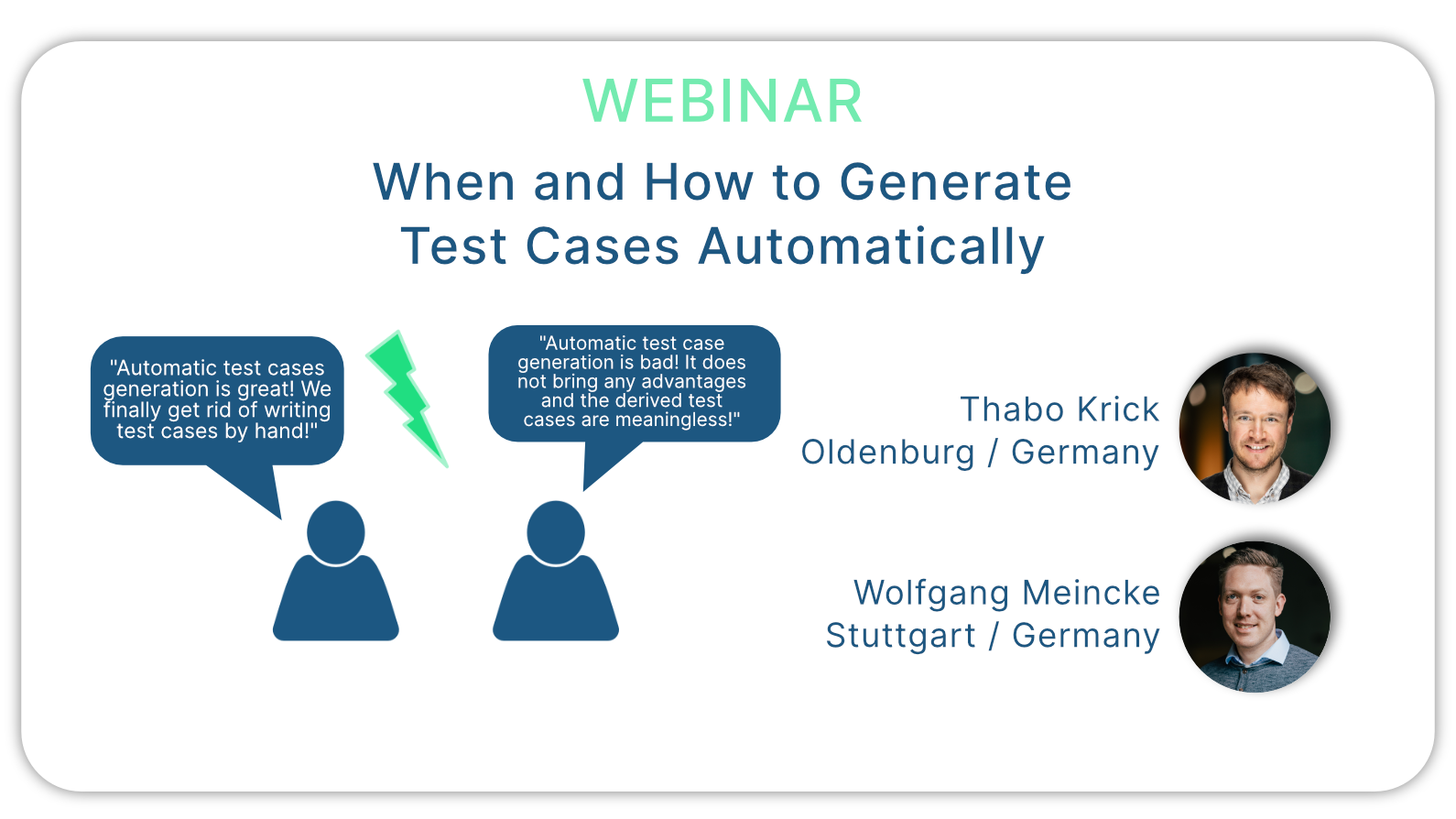
November 09th, 10:00 CET (Berlin)/ 4AM EST (Detroit)/ 14:30 IST (Bangalore)/ 17:00 CST (Beijing)
November 09th, 15:00 CET (Berlin)/ 09:00 EST (Detroit)/ 19:30 IST (Bangalore)/ 22:00 CST (Beijing)
The automatic generation of test cases has always been a controversial topic. While some people dream about stopping any manual test activities others say that test generation is not allowed.
In this Webinar we will discuss when (and when not) it makes sense to generate test cases automatically and how to do it.
Based on examples within a model based development workflow we will show you:
The test goals for which test cases can be generated
- Structural coverage goals
- Robustness goals
- Drive-to-State
- (Machine-readable) Requirements
The use cases in which automatically generated test cases can be useful
- Requirements-based Testing
- Back-to-Back Test
- Regresssion Test
- Migration Test
The technologies which are available to generate tests automatically
- Random methods
- Mathematically complete methods


